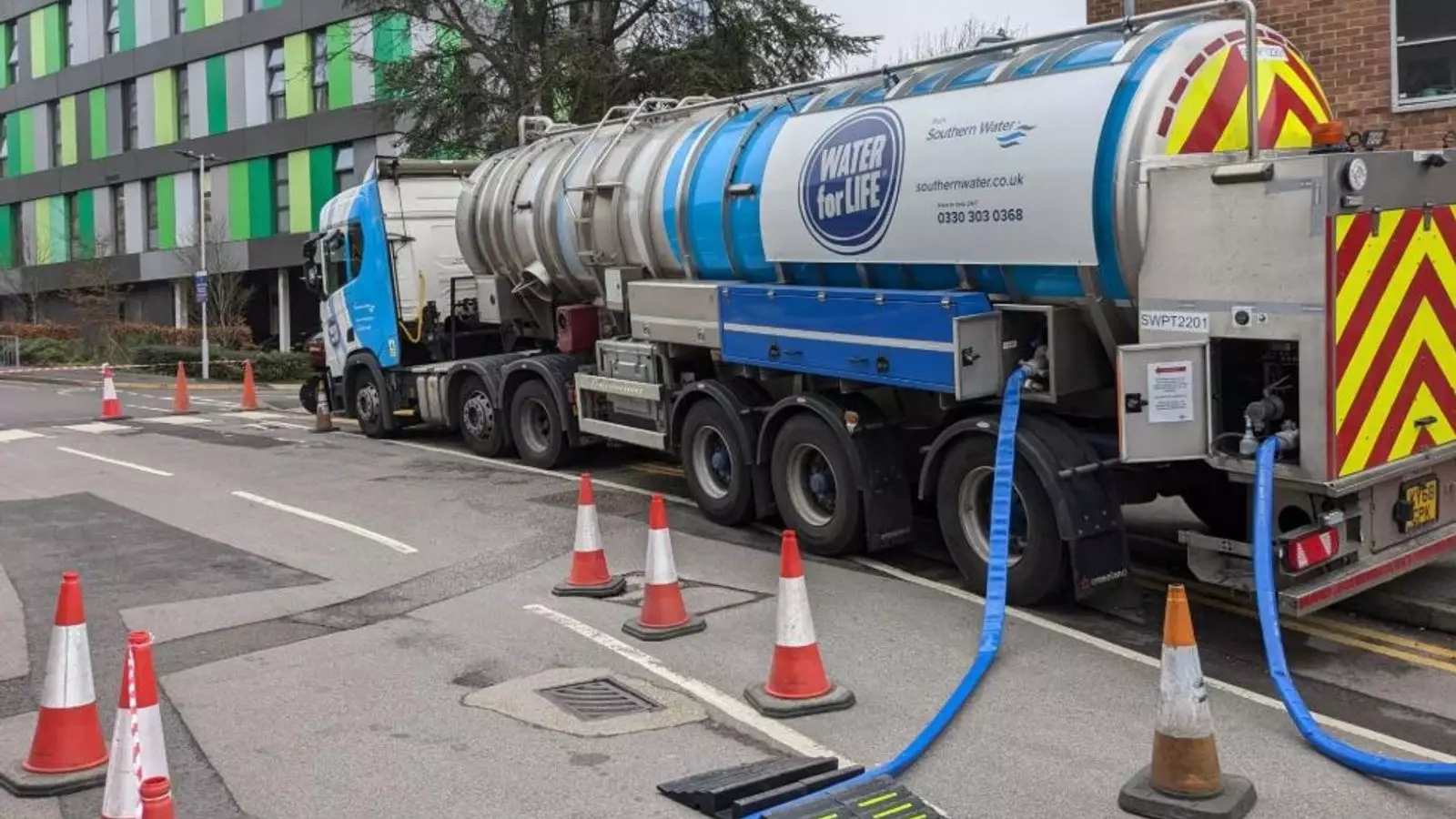In a troubling development, approximately 60,000 households across Hampshire are currently grappling with severe water shortages due to a “technical issue” at the Southern Water Testwood supply station. Affected areas include Southampton, Romsey, Eastleigh, Totton, and segments of the New Forest. Residents have been understandably frustrated as they navigate the challenges of daily life without a vital resource. Southern Water has issued a public apology, promising that efforts are ongoing to restore service promptly; however, they have cautioned that many may not see a return to normalcy until the weekend.
The response from the community has been noteworthy, particularly as long lines form at water distribution points established at Places Leisure Centre in Eastleigh, as well as Sainsbury’s and Asda superstores in Southampton and Totton, respectively. This situation emphasizes the critical need for such support stations in times of crisis. Southern Water has also taken steps to assist vulnerable populations, continuing to deliver water to those flagged on their priority list. Meanwhile, dedicated tankers have been dispatched to crucial local healthcare facilities like Southampton General Hospital and Princess Anne Hospital, highlighting the necessity to ensure that health services are not interrupted during this crisis.
Interestingly, this water supply issue emerges at a time when discussions about rising water costs are becoming heated. Southern Water has proposed an unprecedented 84% increase in water bills, while Thames Water is seeking a 53% hike. The regulator Ofwat is anticipated to announce an increase of over 20% in water prices by 2030, adding an alarming average of £20 to household bills each year. Such significant hikes, moving the average bill from £448 to £542 per annum, raise critical questions about the sustainability of water services and public trust in these providers.
Investment Plans and Public Concerns
Ofwat’s draft decisions, released earlier in July, allowed water companies to raise prices an average of 21% over the next five years. This increase is part of a larger plan to funnel £88 billion into improving services, which includes tackling environmental concerns. However, the larger public sentiment appears to be one of skepticism regarding whether these financial injections will lead to tangible enhancements in service quality, especially in the wake of current operational failures.
It remains to be seen how Southern Water will address both the immediate supply crisis and the longer-term financial concerns raised by consumers. The company’s commitment to restore water supply is imperative, but equally essential is the need for transparent communication and accountability. As residents wait for their water supply to be reinstated, they are left pondering not only their immediate access to this essential resource but also the sustainable future of the water services they rely on. The situation serves as a stark reminder of the fragility of infrastructure and the inherent challenges faced by utility companies in balancing operational efficiency, customer needs, and financial viability.


Leave a Reply